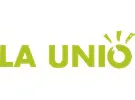La Unió de Llauradors reports that large distribution chains operating in European markets "are currently buying much smaller volumes of Navelina oranges than last year and also at a much lower price than usual."
"At this time, prices at origin amount to an average of 0.15 €/kg; a ridiculous figure that is ruinous for producers and stands even lower than the production costs, when last year at this time they were approximately double. Given the increase in costs like electricity, fertilizers or fuel, the campaign of the most important orange variety of the Region of Valencia could be disastrous if the course is not straightened."

"Much of the blame for this situation could be pinned on the massive imports of oranges from third countries, mainly South Africa in recent months. Large European distribution chains and importers have stockpiled oranges from South Africa and have them stored, leaving our oranges with no outlet," said the organization.
The current EU trade agreement with South Africa -in force since June 2016-, and to be reviewed this year, allows South African oranges to enter European markets from June 1 to November 30 (previously it was until October 15), with a progressive reduction of entry tariffs that in 2025 will disappear definitively.
"The impact on the Valencian, Spanish and European citrus sector of the application of this specific point of the agreement has brought very negative consequences, both from an economic point of view and a phytosanitary one. These have been widely and justifiably denounced in the seven technical reports of La Unió delivered to Brussels, and which are the basis of the justification for a revision of the aforementioned agreement."
According to La Unió, this extension of the import period entails "the possibility of the entry of high volumes of citrus in the last days, resulting in the presence of South African oranges in the markets until after Christmas, with a clear direct impact on the European productions."
La Unió points out that this agreement is already under review and that now is the time to introduce changes, such as reducing the period of imports again, as it has been shown that there is a clear overlap that negatively affects the prices of European citrus. They also ask for tariffs on imports to be reinstated from October 15.
The organization believes that it is necessary to conduct an in-depth analysis of its commercial impact, as well as of the phytosanitary consequences for the European citrus sector.
 For more information:
For more information:
La Unió de Llauradors
launio@launio.org
www.launio.org
